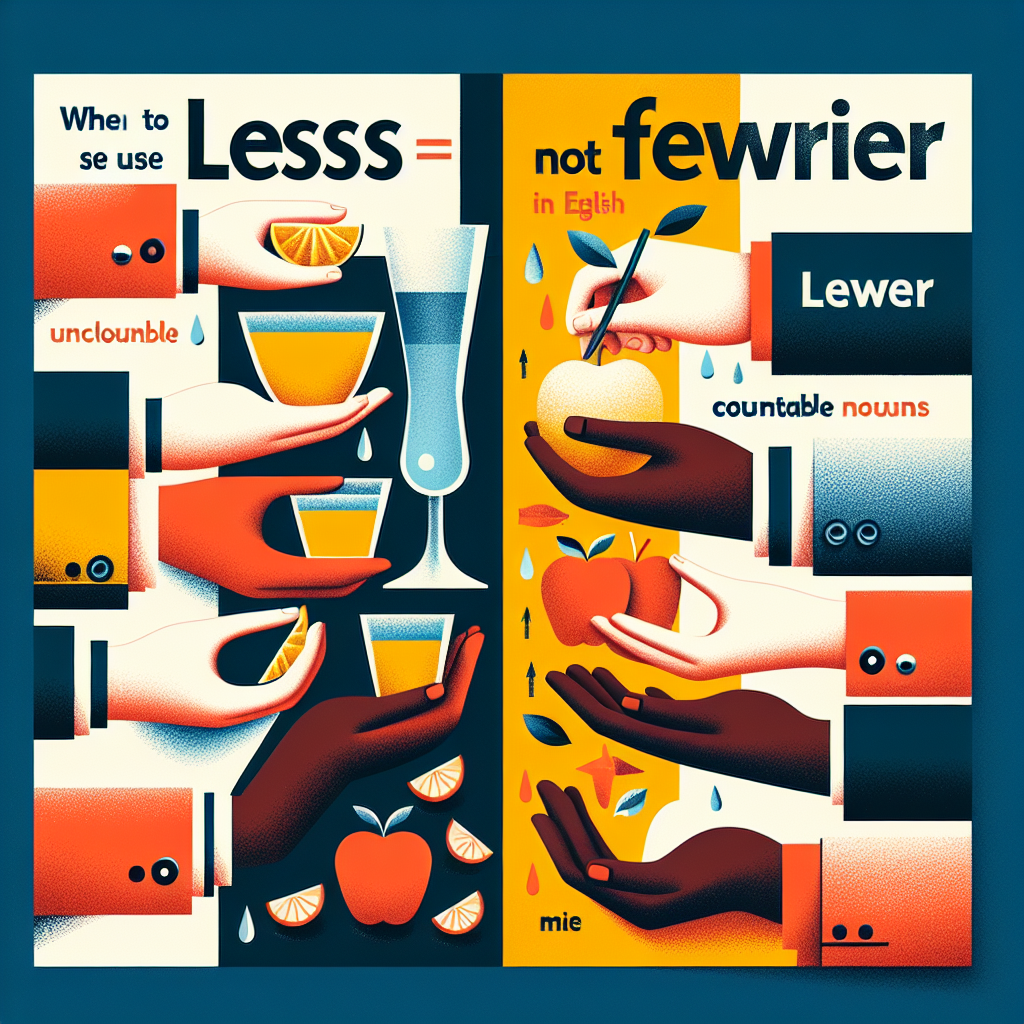When to Use ‘Less’ Not ‘Fewer’ in English
Have you ever been confused about when to use ‘less’ instead of ‘fewer’ in English? Many people struggle with this distinction, but it’s actually quite simple once you understand the rule. Let’s break it down:
Less vs. Fewer
The key difference between ‘less’ and ‘fewer’ comes down to countable versus uncountable nouns. Use ‘less’ when referring to things that cannot be counted individually, and use ‘fewer’ when referring to things that can be counted. Let’s look at some examples:
Examples
Less: I have less sugar in my coffee than you do. (Sugar is uncountable.)
Fewer: She has fewer books on her shelf than I do. (Books can be counted individually.)
Using ‘less’ for countable nouns is a common mistake that many people make. By following this simple rule, you can ensure that you are using the correct word in your sentences.
When to Use ‘Less’
Now that you understand the difference between ‘less’ and ‘fewer,’ let’s look at some common scenarios where ‘less’ should be used:
1. Grocery shopping: Buy less bread next time. (Bread is uncountable.)
2. Weather: We’re expecting less rain this week. (Rain is uncountable.)
3. Time: I spend less time watching TV now. (Time is uncountable.)
By using ‘less’ in these contexts, you can ensure that your sentences are grammatically correct and convey the intended meaning clearly.
Common Mistakes to Avoid
There are a few common mistakes that people often make when using ‘less’ and ‘fewer’ in English. Here are some examples to watch out for:
1. Using ‘less’ with countable nouns: Incorrect – There are less people at the party. Correct – There are fewer people at the party.
2. Mixing ‘less’ and ‘fewer’ in the same sentence: Incorrect – I have less apples but fewer oranges. Correct – I have fewer apples but less oranges.
3. Not paying attention to the noun being described: Incorrect – I have less fries in my bag. Correct – I have fewer fries in my bag.
By avoiding these common mistakes and following the simple rule of using ‘less’ for uncountable nouns, you can improve your English writing and speaking skills.
Conclusion
In conclusion, knowing when to use ‘less’ instead of ‘fewer’ in English is a simple yet important skill to have. By understanding the distinction between countable and uncountable nouns, you can ensure that your sentences are grammatically correct and convey the intended meaning clearly.
So next time you’re writing or speaking in English, remember to use ‘less’ for uncountable nouns and ‘fewer’ for countable nouns. Your grammar will thank you!
#ʼlessʼ #ʼfewerʼ #English
